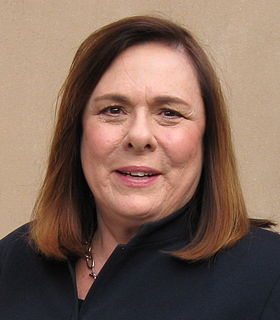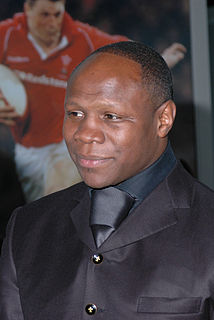A Quote by Jo Frost
My mother had a Spanish upbringing. She was an excellent cook. Everything was home-made. We didn't eat food with smiley faces on it. My Mum passed away in 1994. I miss her. I miss her cooking. It would be nice to have a meal with her again.
Related Quotes
I miss my father. I miss my grandfather. I miss my home. And I miss my mother. But the thing is, for almost three years, I managed not to miss any of them. And then I spent that one day with that one girl. One day ... It was like she gave me her whole self, and somehow as a result, I gave her more of myself than I even realized there was to give. But then she was gone. And only after I'd been filled up by her, by that day, did I understand how empty I really was.
She wondered how people would remember her. She had not made enough to spread her wealth around like Carnegie, to erase any sins that had attached to her name, she had failed, she had not reached the golden bough. The liberals would cheer her death. They would light marijuana cigarettes and drive to their sushi restaurants and eat fresh food that had traveled eight thousand miles. They would spend all of supper complaining about people like her, and when they got home their houses would be cold and they'd press a button on a wall to get warm. The whole time complaining about big oil.
Little miss is taught by her mamma that she must never speak before she is spoken to. On this she sits bridling up her head, looking from one to the other, in hopes of being called to and addressed by the name of pretty miss.... But if this should not happen and no one should take any notice of her, she is ready to cry at the neglect. But should there be another miss in the room caressed and taken notice of whilst she is thus overlooked, it will be impossible for her to contain her tears, and blubbering is the word.
Blaire, This was my grandmother’s. My father’s mother. She came to visit me before she passed away. I have fond memories of her visits and when she passed on she left this ring to me. In her will I was told to give it to the woman who completes me. She said it was given to her by my grandfather who passed away when my dad was just a baby but that she’d never loved another the way she’d loved him. He was her heart. You are mine. This is your something old. I love you, Rush
Her [Eleanor Roosevelt] father was the love of her life. Her father always made her feel wanted, made her feel loved, where her mother made her feel, you know, unloved, judged harshly, never up to par. And she was her father's favorite, and her mother's unfavorite. So her father was the man that she went to for comfort in her imaginings.
Miss Grantham's sense of humour got the better of her at this point, and, tottering towards a chair, she sank into it, exclaiming in tragic accents:'Oh Heavens! I am betrayed!' His lordship blenched; both he and miss Laxton regarded her with guilty dismay. Miss Grantham buried her face in her handkerchief, and uttered one shattering word: 'Wretch!
No, Miss Wright didn't want to meet her kid. To her, that relationship was just as important, just as ideal and impossible as it would be to the child. She'd expect that young man to be perfect, smart, and talented, everything to compensate for all the mistakes that she'd made. The whole wasted, unhappy mess of her life.
She expected the pain, when it came. But she gasped at its sharpness; it was not like any pain she had felt before. He kissed her and slowed and would have stopped. But she laughed, and said that this one time she would consent to hurt, and bleed, at his touch. He smiled into her neck and kissed her again and she moved with him through the pain. The pain became a warmth that grew. Grew, and stopped her breath. And took her breath and her pain and her mind away from her body, so that there was nothing but her body and his body and the light and fire they made together.
The idea of the book ["The Japanese Lover"] came in a conversation that I had with a friend walking in the streets of New York. We were talking about our mothers, and I was telling her how old my mother was, and she was telling me about her mother. Her mother was Jewish, and she said that she was in a retirement home and that she had had a friend for 40 years that was a Japanese gardener. This person had been very important in my friend's upbringing.



































